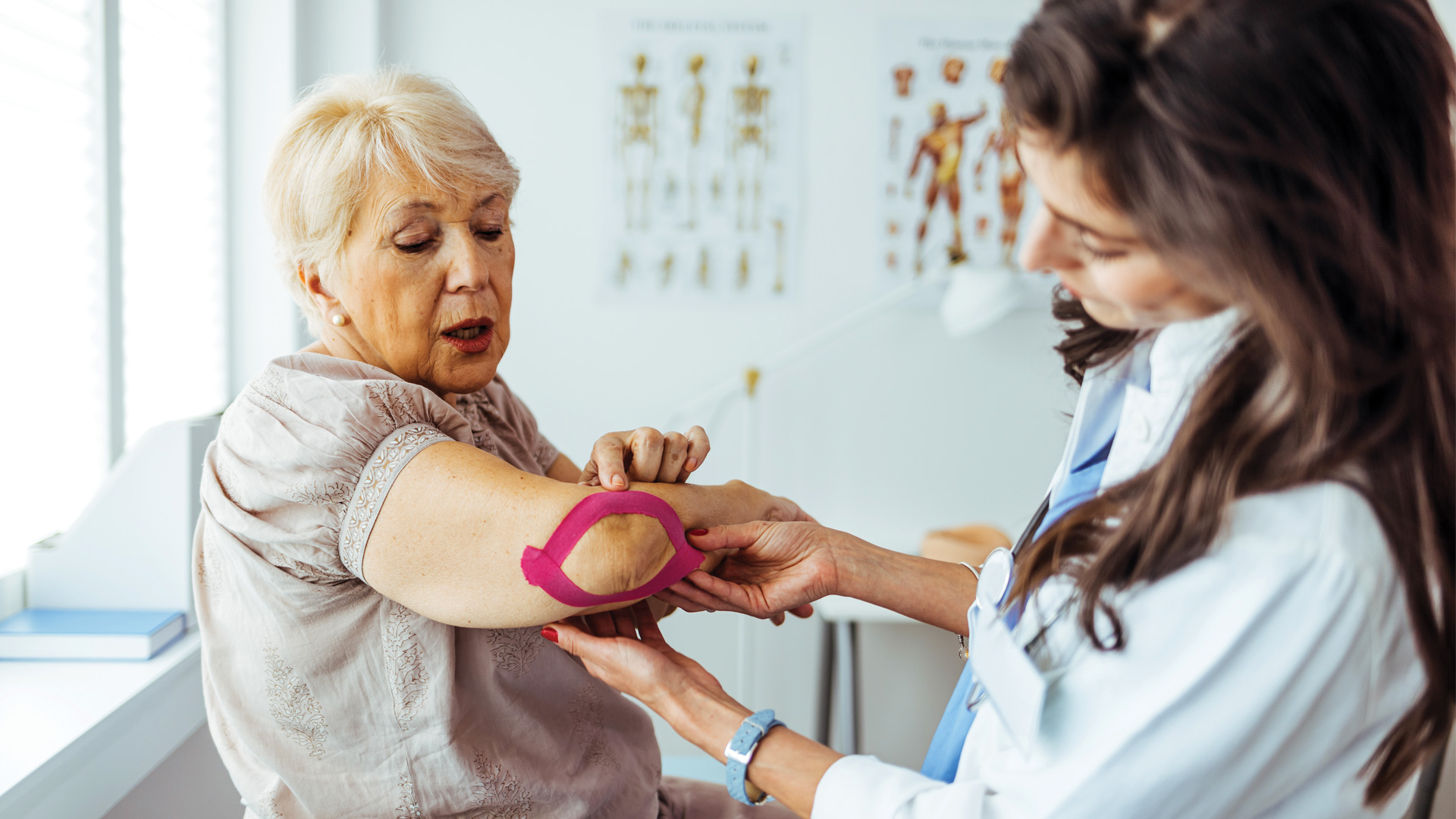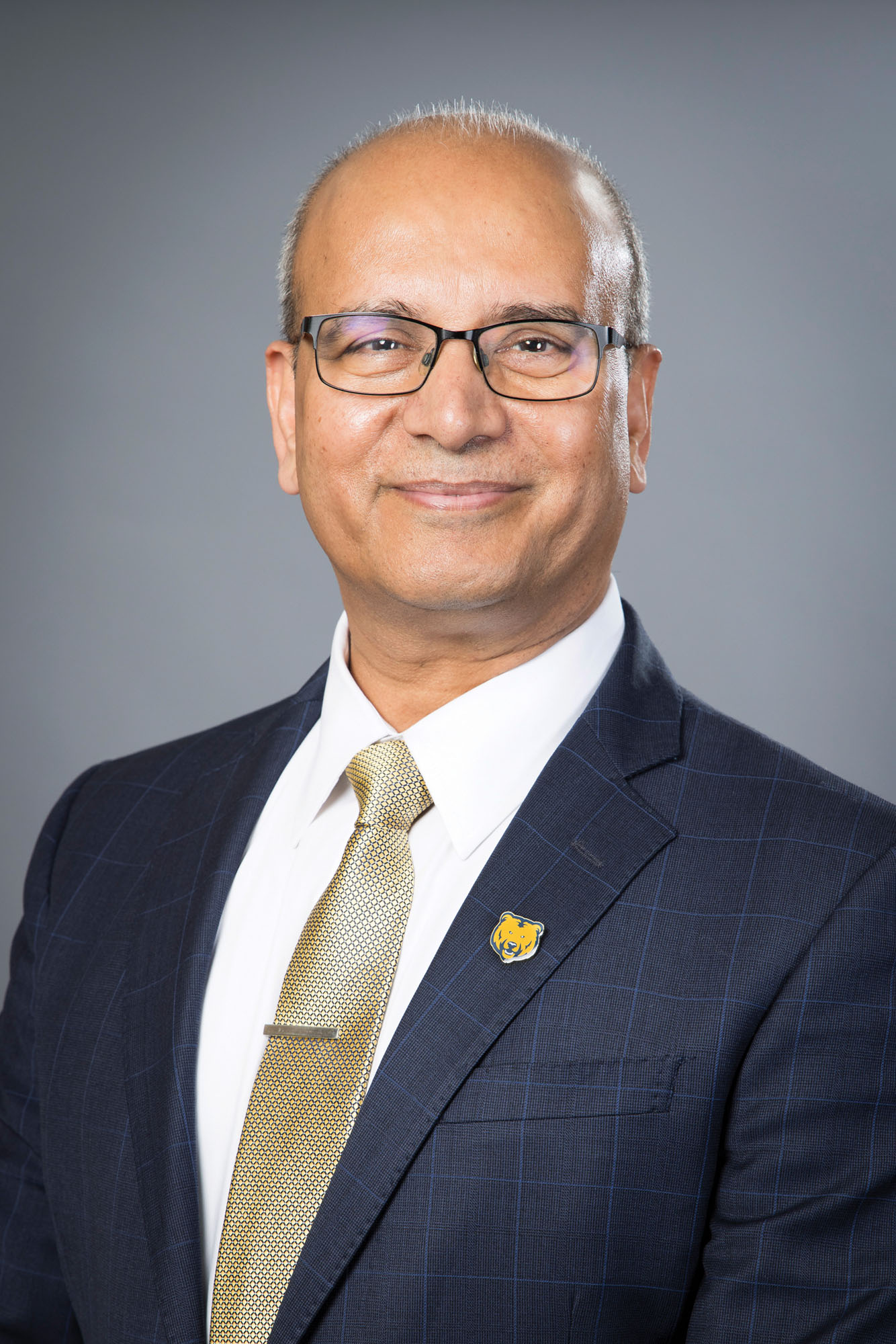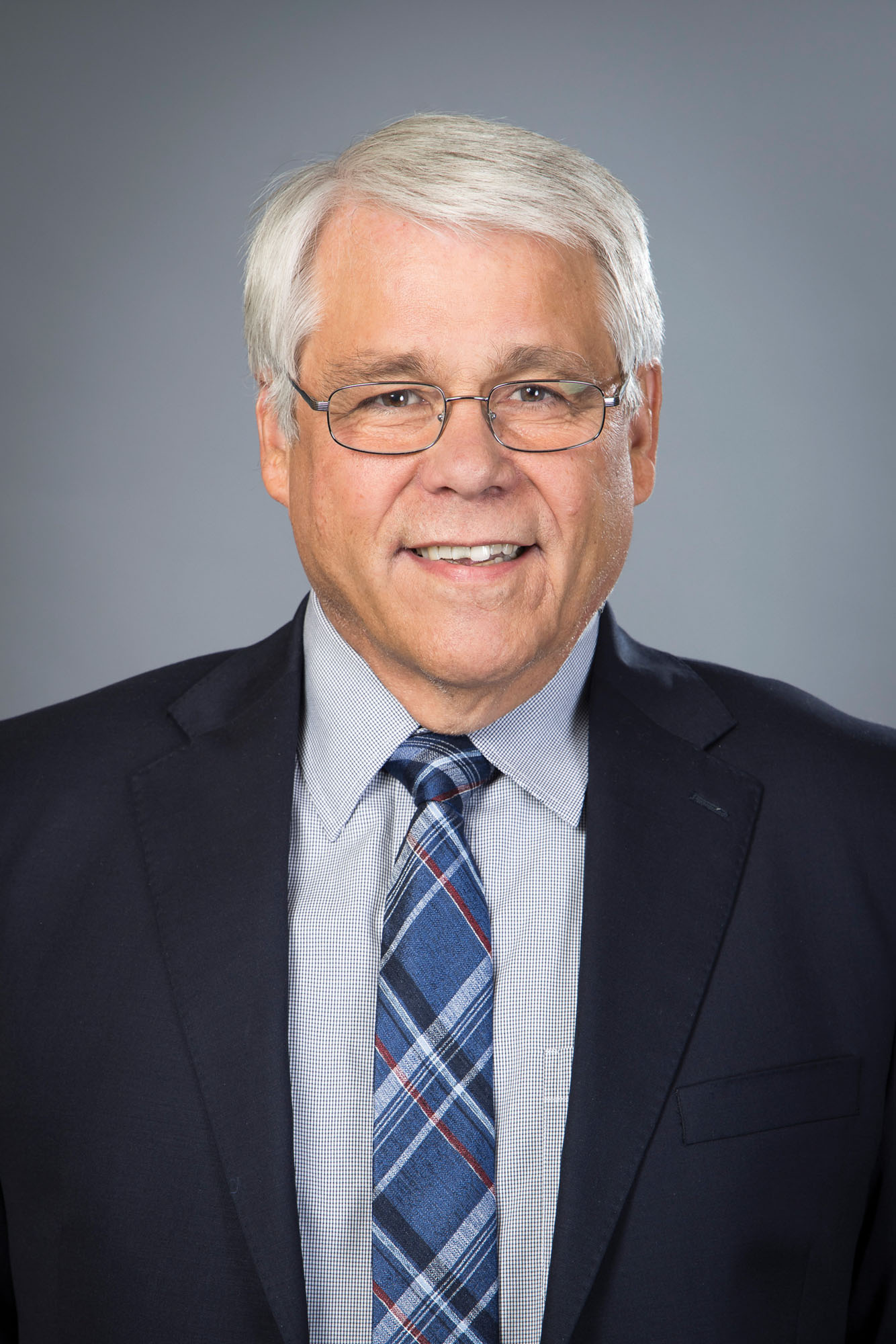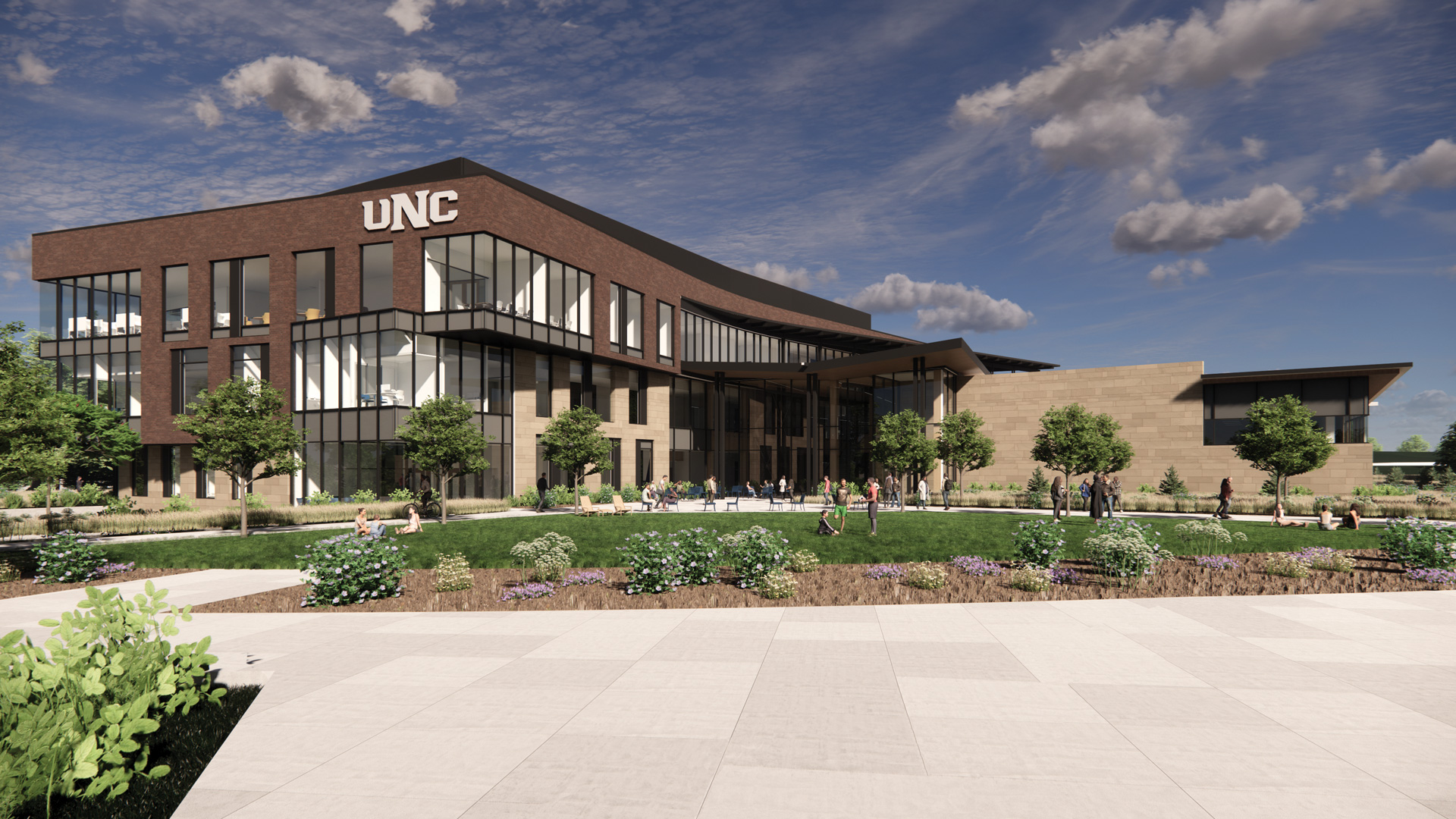It has been three years since President Andy Feinstein — with the support of the local health care community and other leaders — launched his ambitious vision to open a medical college on the University of Northern Colorado’s (UNC) campus.
Those efforts address the critical shortage and growing demand for doctors, particularly in rural areas, which is negatively impacting people’s ability to access health care in Colorado.
Now, the logistics of creating UNC’s proposed College of Osteopathic Medicine (COM) are falling into place, thanks to the tremendous efforts of university leadership, donors and supporters. The feasibility and economic impact studies are complete, state legislation has been passed, funding has been secured, a dean and two associate deans have been hired and now another significant milestone — the Commission on Osteopathic College Accreditation (COCA) advanced UNC’s proposed College of Osteopathic Medicine from Applicant to Candidate Status in August.
Candidate status is the second of three stages the university must go through prior to reaching full accreditation. According to Beth Longenecker, D.O., M.S., FACOEP, FACEP, and founding dean of the UNC COM, the advancement in the accreditation process means the college is officially recognized by the COCA and will be publicly listed on their website. It also means the college is on track to begin recruiting its first class in 2025 and welcoming them to campus as early as fall 2026.
As those foundational elements have come together, Longenecker has been working to create relationships, developing the tenets of a student-centered program and orchestrating the vision that will make Colorado’s third medical school stand out from the rest.
“Our vision is to create a medical college that serves as a catalyst in building a more diverse physician workforce who will positively impact communities across Colorado and the intermountain region, particularly in rural and underserved communities.”
One of the fastest-growing health care professions in the country, osteopathic medicine is both a philosophy and practice. It is a holistic approach to patient care that focuses on the body’s ability to heal itself and considers the patient as a whole person, according to the American Association of Colleges of Osteopathic Medicine. Osteopathic medicine focuses on providing care in rural and urban underserved areas with more than half of the nation’s DOs practicing in the primary care specialties of family medicine, internal medicine and pediatrics, according to a 2023 American Osteopathic Association report.
The Country Doctor
“In rural communities, rural doctors are not just treating patients, they are treating neighbors, friends, their kid’s teachers, etc. So, there’s this whole other emotional level to preparing physicians for rural communities,” explains Longenecker.

Born and raised in Limeport, Pennsylvania, a small town of fewer than 2,000 until she was 13 years old, Longenecker is well acquainted with rural doctors. Her father was one. He even made house calls when patients were unable to come into the office, sometimes with his daughter in tow, observing and absorbing it all. Longenecker’s mother was the office nurse.
“I remember it was $7 per visit and $9 for a visit with medical drug dispensing,” recalled Longenecker. In the 1930s, house calls represented 40% of physician-patient encounters, according to the medical journal Clinics in Geriatric Medicine (Feb. 2009). In 1972, only about 5% of care provided by doctors took place in patients’ homes, and by 1980, house calls had decreased to less than 1%.
“By recruiting rural students [for medical school], there’s a higher probability that they will go back to their communities as rural doctors. At UNC COM, our students can participate in rural physician mentorships.”
While UNC COM graduates will probably not be making house calls, they will reflect some of the same core values as the old country doctors: care of the whole person, empathy, listening and collaboration, a holistic approach to medicine and focusing on medically underserved areas.
A Natural Fit for Medical Education
“The looming physician shortage is an issue that will have broad impacts across many Colorado communities,” said Feinstein. “There is a clear and urgent need for more medical education programs to begin training additional future physicians now. Our location is the fastest-growing metropolitan area in Colorado and one of the fastest-growing in the country, meaning UNC is well-positioned to help meet that need for our region and beyond.”
Widely recognized as a leading university for education and teacher preparation, UNC also has a history of excellence in the health sciences, with its popular undergraduate Nursing program ranked No. 54 in the nation in U.S. News & World Report’s 2025 Best Colleges. The university offers nationally recognized programs in Nursing, Rehabilitation Counseling, Audiology, Public Health and Speech-Language Pathology.
With its recent federal recognition as Colorado’s newest Hispanic Serving Institution and deep commitment to diversity, equity and inclusivity, UNC is ready to prepare the next generation of physicians while also increasing underrepresented populations in Colorado’s physician workforce.
Anatomy of a Different Kind of Medical School
Driven by a mission to provide a transformative education in a culture that cultivates proficiency, inclusion, collaboration, mentorship and professionalism, Longenecker and the COM faculty are committed to inspiring students to become caring physicians who embrace their identity, deliver patient-centered care, promote health equity and positively impact the patients and communities they serve.
The college will have a holistic approach to admissions. The COM student body will reflect UNC’s undergraduate population: working students, low-income students who may not be able to take advantage of medical tests preparation courses, students who are first in their families to attend college and other diverse populations. And, of course, UNC graduates.
“We will look at fit over academic profile: UNC graduates, community service, leadership, those who want to make a difference in communities … and less weight on MCAT scores,” said Longenecker.
The ability to provide strong student support is what will set the UNC COM apart from other medical schools. This includes academic support to ensure students excel in their coursework by monitoring students’ progress, helping them develop and organize their study strategies, providing standardized test-taking strategies, building mentorship opportunities and support, among other student success services.
“We want to destigmatize seeking study support, help or services,” said Longenecker, addressing the shame or embarrassment these high-achieving students often have when considering asking for help.
Longenecker experienced this herself when she was in medical school.
“I failed my first ever test in med school — an anatomy test. I had never failed any test in my life. Never failed anything in my life. Until medical school,” recounted Longenecker.
Medical school is quite different, explains Longenecker. “We [at the UNC COM] are here to support our students. It is one of the reasons I came to UNC. We need to be ready to help our students as they juggle life issues along with the challenge of medical school here.
“The national attrition rate of medical schools is 3-5%. We want to do better than that for our students,” said Longenecker, emphasizing her commitment to retain and graduate her students, the next generation of physicians who advance the distinctive philosophy and practice of osteopathic medicine.
Expanding Leadership Team
This fall, Dean Dr. Beth Longenecker welcomed the first members of her leadership team to campus: Sanjeev Choudhary, Ph.D., and David Ross, D.O., FACEP, who will serve as associate deans for the UNC COM.
“These new leaders will be instrumental in developing the infrastructure for our curriculum, furthering our relationship with our clinical partners in the community, recruiting quality faculty and achieving pre-accreditation, our next step with the COCA.”
Sanjeev Choudhary, Ph.D.
As the associate dean of Preclinical Education, Choudhary will direct the development and roll-out of the UNC COM curriculum, oversee the division of assessment and lead the development of the college’s research program. For the past five years, Choudhary served as a professor and founding chair of the Department of Molecular and Cellular Biology at Sam Houston State University — College of Osteopathic Medicine (SHSU-COM).

Like UNC COM, SHSU-COM’s mission is to train health care professionals who can make a meaningful impact on the health and well-being of rural and underserved communities.
“As we embark on the journey to shape the future of health care through UNC COM, I am driven by a singular vision: To empower the next generation of physicians with the knowledge, compassion and innovation needed to serve our most vulnerable communities,” explained Choudhary.
“Together, we will build a curriculum and research foundation that extends beyond the classroom, creating a lasting impact on rural and underserved populations.”
Choudhary has also held tenure-track faculty positions in the Departments of Biochemistry and Internal Medicine at the University of Texas Medical Branch in Galveston.
Choudhary brings more than two decades of extensive administrative, teaching and leadership experience to his role at UNC COM. He has utilized a wide range of active learning methodologies, including problem-based learning, team-based learning, case-based learning, flipped classroom and small-group discussions among others.
Choudhary has received research funding from the National Institute of Health, American Heart Association, American Diabetes Association and others. He is an American Council on Education Fellow and gained a comprehensive understanding of effective leadership in higher education, including strategic planning, new program development, fundraising, university finances and student success.
After earning his bachelor’s in Chemistry and his master’s in Biochemistry at the University of Pune in his native India, Choudhary received his doctorate in Biochemistry from the Post Graduate Institute of Medical Education and Research, a prestigious medical research institute in India.
David Ross, D.O., FACEP
Ross, the associate dean of Clinical Education and Graduate Medical Education, will oversee the clinical components of the curriculum, including fostering relationships with physicians and hospital systems to secure clinical rotations. He will also spearhead efforts to create additional residency training programs across the state and region.

“I was excited about the opportunity to design something together with my coworkers, Dr. Choudhary and Norma Juarez and, of course, Dr. Longenecker, that we think will work well for students. How that will all work, and how we will integrate into the rest of the university … were very interesting challenges for me,” said Ross. “[At my previous university], we just didn’t have the scope of colleges and schools like you do here.”
The award-winning educator and scholar brings extensive teaching, mentoring, state and national leadership as well as research experience to his role at UNC COM. Previously, Ross served as professor of Emergency Medicine at Rocky Vista University College of Osteopathic Medicine (RVUCOM) in Englewood, Colorado.
He also served as a faculty member in the Office of Simulation in Medicine and Surgery, director of the Rural and Wilderness Medicine Track and co-director of the Pre-Doctoral Simulation Fellowship program. As part of his work there, Ross was charged with identifying and growing medical student interest in rural and wilderness medicine. He developed a Rural Physician Mentorship Program for students in that track.
“I had a group of students every year at Rocky Vista who were interested in rural practice, and we tried to cultivate them and grow that interest into rural medicine,” said Ross. “Through that work, I really have come to enjoy working with rural physicians and appreciate what they do. Because unless you go there, see and talk to them, you don’t really realize what it’s like. And it is very much the UNC COM’s mission to produce rural primary care physicians.”
As a trauma center site surveyor for the Colorado Department of Public Health and Environment, Ross visited nearly all the rural hospitals and communities in Colorado. Leveraging his own military experience in the U.S. Air Force in rural Oklahoma, Ross served as the course director for the first and second years of RVUCOM’s Military Medicine Program. The rigorous program introduces students entering active-duty service to military medicine over three and a half years.
Ross earned his bachelor’s degree in Nutritional Science from the University of Washington and his Doctor of Osteopathic Medicine from the College of Osteopathic Medicine of the Pacific at Western University of the Health Sciences in Pomona, California.
In September, Longenecker launched searches for an associate dean of Admissions and Student Affairs to start in January; five full-time faculty members; and three department chairs in Anatomy, Natural Medicine and Primary Care all to start July 1, 2025. In total, UNC COM will have 65 faculty and staff by 2030.


